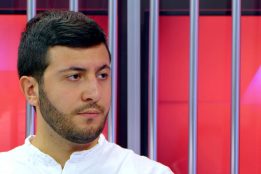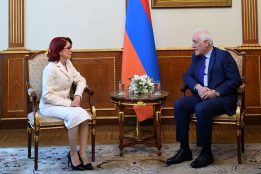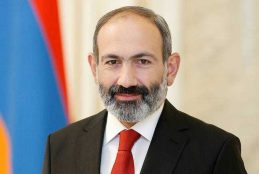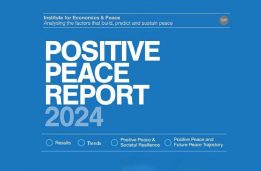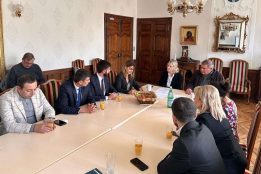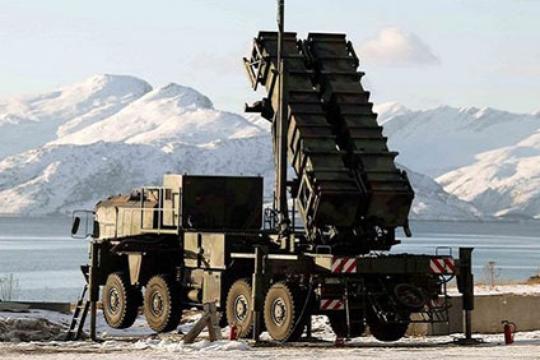
Carnegie Endowment touched upon Turkey’s need of Patriot missiles. Find the article below.
German parliamentarians will vote this week on sending Patriot missiles to their NATO ally, Turkey. They are expected to give the green light following NATO foreign ministers’ December 4 approval of a Turkish request for the missiles. The Netherlands and the United States will also provide Patriot batteries.
German lawmakers have no option but to vote yes to a mission that will entail Berlin sending up to 400 of their soldiers to Turkey’s border with Syria. Defense minister Thomas de Maizière, and foreign minister Guido Westerwelle, said the issue was about Alliance solidarity with Turkey.
Turkey has been vulnerable on two counts since the fighting in Syria began over 20 months ago. The mortar shells fired by pro-Syrian forces on opposition positions, and vice versa, have often landed on the Turkish side of this increasingly volatile border. And second, tens of thousands of Syrian refugees have fled to Turkey. Turkish citizens and the refugees they shelter need protection. It is strange that Turkey did not officially request the Patriots earlier.
The German government’s willingness to support NATO—despite misgivings by the opposition Green Party and the public who see a risk of Germany being dragged into the conflict—is not only about Alliance solidarity. It is about making good on a previous political miscalculation.
In March 2011, Germany abstained in a UN vote to impose a no-fly zone over Libya in order to stop the Gaddafi regime from attacking rebels. As a result, Berlin did not participate in the NATO bombing campaign against Gaddafi forces. In retrospect the NATO campaign went beyond the original UN mandate which did not include bombing buildings, ports, and highways.
Yet Germany was heavily criticized for its abstention. Supporting Turkey now could help repair its reputation inside NATO.
But sending the Patriots to Turkey has raised many questions about their use. For one thing, Patriot missiles are designed to intercept missiles and aircraft, not stop mortar attacks. In that sense, they are being deployed for reasons of solidarity and deterrence, not against a proven threat.
“We stand with Turkey in the spirit of strong solidarity,” said NATO secretary general, Anders Fogh Rasmussen on December 5 during a meeting of NATO foreign ministers in Brussels. “To the Turkish people, we say, we are determined to defend you and your territory. To anyone who would want to attack Turkey, don’t even think about it.”
The German Greens and other skeptics of NATO’s latest mission fear that the deployment of the Patriots is only the first step towards a far more active role in the Syrian conflict. In particular, they are concerned that Western countries might be tempted to try and establish a no-fly zone over Syria. After all, Turkey’s Prime Minister, Recep Tayyip Erdoğan, who has openly supported the Syrian opposition, wanted that from the beginning.
Officially, at least, NATO has always been opposed to the idea and even if it considered it, such an intervention would require a UN mandate. Russia, which has consistently supported Syria’s president, Bashir al-Assad, would veto any such motion. Russia is already highly suspicious of the Patriot missile decision.
“The deployment will in no way support a no-fly zone over Syria,” Rasmussen said on December 5 in Brussels. “Such a deployment would contribute to the de-escalation of the crisis along NATO’s south-eastern border.”
The presence of NATO troops on Turkish territory is ambiguous for the Turkish population. They are seen as a deterrence measure but Turks also fear this step might lead to further escalation.
Germany and other NATO countries have no wish for the Patriots to be the beginning of a NATO intervention in Syria. The fact that these systems will be based on the border with Syria means that NATO is getting very, very close to being dragged into the conflict. If Assad gets desperate enough to use chemical weapons against his own population, it will be difficult for NATO to remain on the sidelines. That is Germany’s real worry.

















